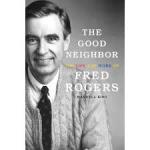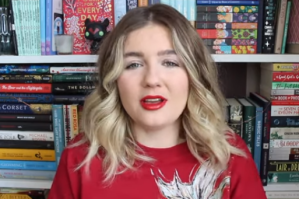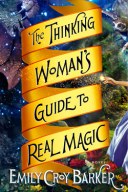What do a dwarf, a holy man and a ghost horse all have in common? –Danny Riley, a mixed-up NDN on the wrong nation’s rez, who may or may not be a witch.
Riley is at the center of writer John T. Biggs’s latest magical realist novel CHEROKEE ICE, which I am excited to learn is a fiction finalist for the 2016 Oklahoma Book Award.
On its surface, the novel is about the rise and fall of a designer drug in several Southwestern states, but at its core it is a family saga that is as much about what we would do for family as what family does to us.
With this book, Biggs proves again that he understands how to ground the magical in the real, be it a young man’s first, awkward sexual encounters or his fraught mother-son relationship.
Biggs also understands the beauty of a well-written prologue. In the taut, three-page scene that opens the book, he manages to create sympathy for an otherwise unsympathetic character, thereby steeping us literally (in-utero) in the main character’s same conflicted emotions. Emotions that are later mirrored in other characters, both major and minor.
One such example is supposed tough-guy Tommy Bracken, a drug dealer whose own addiction to the emotional vulnerability of a sexually sadistic relationship (with Danny’s grandmother, no less) and acute fear of spiders is often at odds with the extreme macho-ism needed to maintain his territory.
In this sea of emotion and drama, characters, over time, begin to merge into each other. Whether it be morphs between fathers and sons, brothers and husbands, drug lackeys or cops, the unpredictable shape-shifting heightens the vision-like quality of the storyline.
One of my favorite vision-like scenes comes in the last quarter of the book, when Lil Bits, the aforementioned dwarf, tries to kill Danny for the second time, this time with the help of silver bullets and a few hired goons. Pardon the long passage (readers and publisher), but the space is needed to see how Danny works his special kind of mojo:
Green goo covers the African American dwarf’s eyes, spoiling his aim as he fires a silver bullet into the wasp nest on Danny Riley’s pickup truck.
Danny feels the burn of the wasp toxin for the time it takes his heart to shift into overdrive. The nausea clears. Poison tumbles through his drug factory enzymes and winds up in his brain, where it’s a lot different than it started out. Danny Riley suddenly understands that bullets aren’t nearly as dangerous as wasps.
His wasp-sisters’ poison doesn’t turn into visions inside Little Bits’ hired killers. They have their pistols out, squeezing shots off this way and that, filling the air with projectiles than fly off to lodge in buildings and automobiles and maybe an innocent bystander or two.
Clouds of nitrate-flavored smoke don’t hinder Danny or his wasp-sisters at all. Gunpowder residue tastes as sweet as nectar on his lips. It doesn’t burn his eyes or dull his vision. Everything is crystal clear, broken into a thousand pieces Washed in rainbows, as if Danny is gazing at the world through a cut diamond lens.
Danny Riley knows he is not a wasp, as much as he knows anything, but he is moving too fast to think about it clearly. Faster than thoughts, faster than all the reasons a man can’t move this fast. Faster than Little Bits can take aim through the haze of smoke and vomit and superstition.
The African American dwarf empties his revolver of silver bullets, tries to make one land on Danny, who is moving around him the way a swam of hornets attacks a marauding bear.
Danny snatches the pistol out of Little Bits’ hand. Throws it at one of the Italian killers. Hits him square in the face. Knocks him out as he fires his pistol one last time and shoots his partner in the knee.
Little Bits takes off running down the center of the street, screaming for one of his two silver Jesuses to save him from witches and wasps.
 The situation only gets more complicated after that, and what a wild ride to get to the conclusion!
The situation only gets more complicated after that, and what a wild ride to get to the conclusion!
That said, I felt that the ending, which was satisfying in its own way, needed to go just one step farther with Danny by letting his newfound courage bring him back into his own identity.
All in all, though, another great book from Biggs, who also has a new short story collection out from Liffey Press, called appropriately, SACRED ALARM CLOCKS. The collection made the best selling Oklahoma Writers list in February.
For more news on his writing, check out johnbiggsoklahomawriter.com































 The situation only gets more complicated after that, and what a wild ride to get to the conclusion!
The situation only gets more complicated after that, and what a wild ride to get to the conclusion!